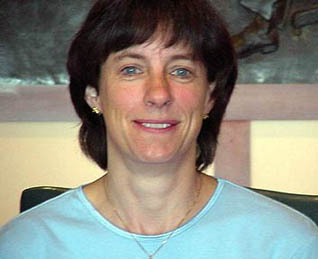"... it's not just about trees…the institute is really a three-legged stool. Our three primary functions are research, education, and outreach."

...the institute is really the brainchild of Wally Covington. He's been at NAU since the seventies. He's an expert in ponderosa pine ecology. He's an ecologist, and has studied the role of fire in the ponderosa pine ecosystem for his career. And in fact, he was one of the early people to predict that we were going to see worse and more abnormal fires. He started predicting that a while ago. And unfortunately, that prediction has borne fruit. His other concern is that he sees this as an ecosystem that's endangered by the absence of low-intensity fire, and that needs to be reintroduced, and it needs to be reintroduced soon, a window of fifteen to thirty years. And so Wally has been advancing these ideas for a while as a professor over in the Forestry School.
And then he established perhaps five years ago, six years, the Ecological Restoration Program, because it's not just about trees, and he wanted to advance the whole notion that this is an ecological problem. And from there, in February of 2000, the Arizona Board of Regents established our program as an institute. And the institute is really a three-legged stool. Our three primary functions are research, education, and outreach. And one of the reasons I think we've been successful in capturing so much funding is because of our three-legged approach. The research we do is geared towards what we need to know, not just what we'd like to know. So in other words, we're looking at the land, and the land managers' needs, to find what research needs to happen.
From the educational standpoint, we are at the university here, Northern Arizona University. We engage both undergraduates and graduates actively in the work that we're doing. We pay them to participate. We give them hands-on restoration experience. They've been in the woods, they know what it takes. So it's an important part of professional development for students here on campus. Although we do not offer a major, we offer an emphasis area to enhance areas of their major.
And then the final leg of the stool is outreach. And that probably sets us apart more from other academic institutions than anything else—and that is that we actively try and translate our science into the words that decision-makers, land managers who are doing this work, and community members can understand.